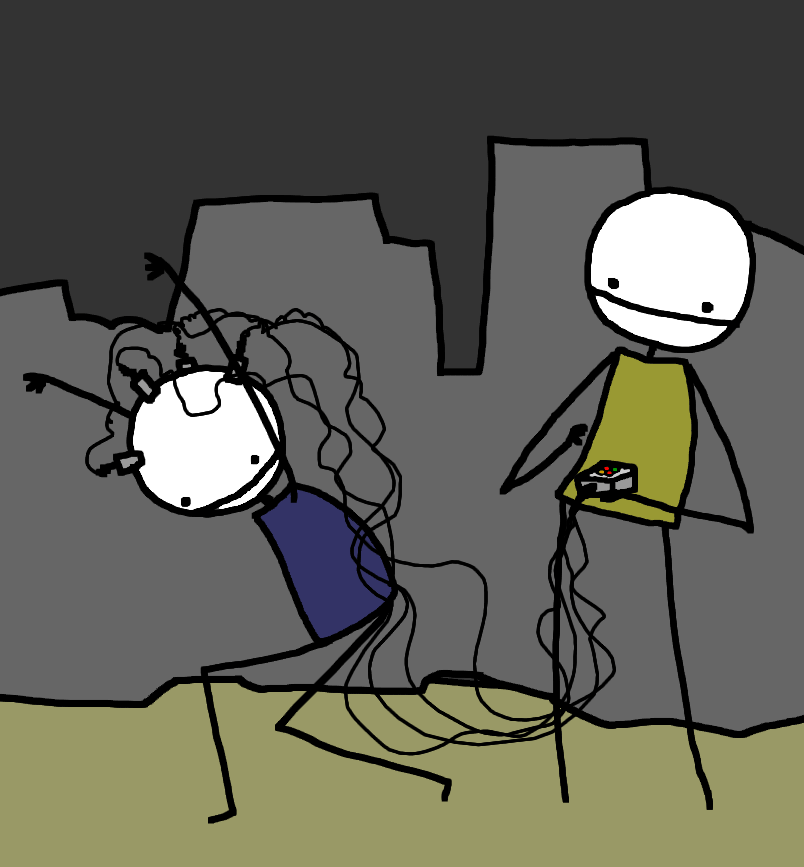
sam brown, explodingdog
It is only when it is believed that I could have acted otherwise that I am held to be morally responsible for what I have done. For a man is not thought to be morally responsible for an action that it was not in his power to avoid.
This principle that Ayer is stating here is called the Principle of Alternative Possibilities (PAP):
One is responsible for doing X only if one could have avoided doing X; that is, only if one could have done otherwise.
The Consequence Argument is so threatening because it seems to show that, if determinism is true, we could never have avoided doing the things we actually do. According to the PAP, that shows that we're not morally responsible for any of our actions.
But is the PAP correct? Some kinds of thought-experiments suggest that it's not. Here is such a thought-experiment, due to Harry Frankfurt:
Shelia wants to murder Joe. And Dr. Black wants Shelia to murder Joe. To make sure that she goes through with it, he kidnaps Shelia in her sleep and implants a device in her brain which will enable him to influence her actions. However, he leaves the device turned off. He watches Shelia carefully. As it happens, Shelia goes ahead and kills Joe of her own accord. Dr. Black was sitting there in the wings, ready to intervene if necessary. If Shelia had gotten cold feet at the last minute, Dr. Black would have turned on his machine, and forced her to go ahead and kill Joe. So, unbeknownst to Shelia, she could not have avoided killing Joe.
Many people have the intuition that in cases of this sort, Shelia is responsible for her actions. Yet it also seems to be the case that Shelia could not have avoided performing those actions. (Perhaps if Dr. Black had forced Shelia to kill Joe, Shelia would no longer be responsible for her actions. That may be. All we're claiming now is that, in the case we described, Shelia is responsible for her actions; and that, in the case we described, it is false to say that Shelia could have avoided performing those actions. She may have thought she could have avoided them. But as a matter of fact, she could not.)
So we seem to have a counter-example to the PAP.
In response to these cases, some philosophers adopt a position that gets called semi-compatibilism. According to semi-compatibilism, determinism is incompatible with free will. If determinism is true, then that shows that you could never have acted or chosen otherwise than you in fact do. But the semi-compatibilist says that determinism is compatible with moral responsibility. Just like Shelia, you can be morally responsible for some action even if you could not have acted otherwise, even if you could not have prevented yourself from performing that action. It's enough for moral responsibility that you satisfy the other conditions for free will that we've been articulating.
What do you think of that? Does it sound plausible to you?